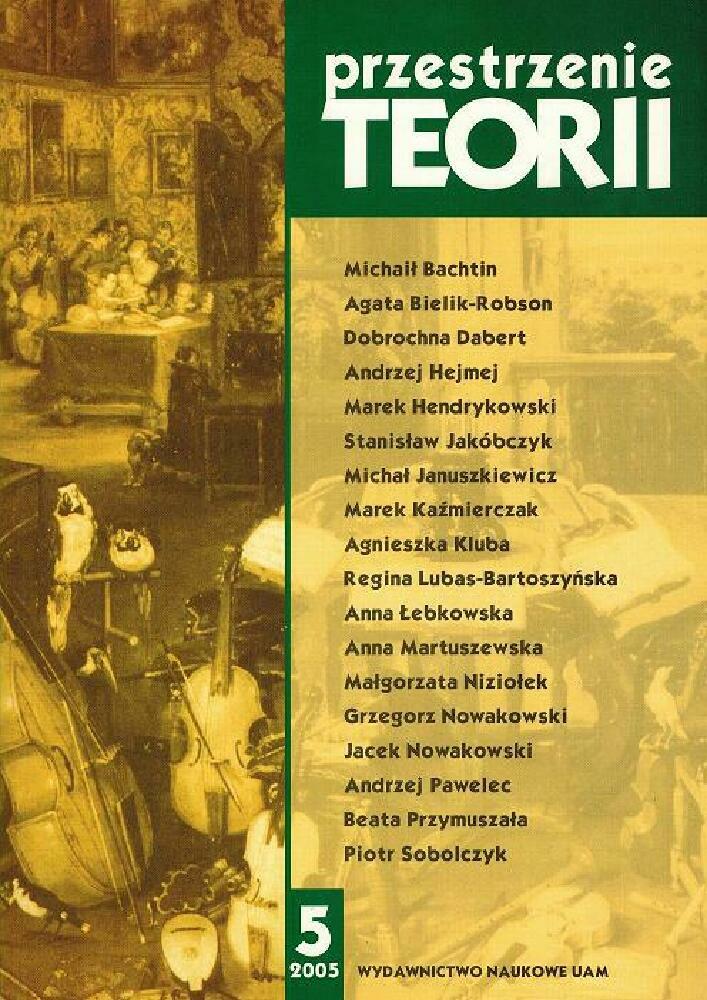Abstrakt
The formula of "defence of overinterpretation" referred to in the title of this article must be received in the context of S. Fish's conception of paninterpretationism, according to which there is no possibility of verification of readings of a text. Fish assumes that we only compare interpretations and we do not have any access to "the text itself". Arguing with this interpretation, I refer to a legal conception (after all the one used by Fish) of interpretation of laws (confining the analysis to Polish doctrine). In spite of this researcher's claim (everybody "uses" laws for their own goals) the theory of interpretation indicates the necessity of separating the linguistic exegesis (explanation, interpretation) of a law which becomes a point of reference for the system, functional and axiological interpretation. The possibility of departures from the linguistic interpretation requires the existence of specific conditions threatening the system of values and at the same time is a proof of the importance of this type of interpretation. Thus, differentiation of interpretation takes into account the linguistic dimension of a text, allowing to speak about interpretations which "are not in accordance with the law". Transferring these views from the study of the press onto the studies of literature one can see the closeness of this approach to U. Eco's interpretations (the "intentio operis" conception) or - on Polish grounds - K. Bartoszyhski's and H. Markiewicz's views. "The defence of overinterpretation" appears to be a defence of the possibility of differentiating of interpretation and performing its verification.Licencja
Autorzy
Autorzy tekstów przyjętych do publikacji w czasopiśmie „Przestrzeniach Teorii” są zobowiązani do wypełnienia, podpisania i odesłania na adres redakcji umowy o udzielenie nieodpłatnej licencji do utworów, z zobowiązaniem do udzielania sublicencji CC.
Zgodnie z umową, autorzy tekstów opublikowanych w czasopiśmie „Przestrzeniach Teorii” udzielają Uniwersytetowi im. Adama Mickiewicza w Poznaniu niewyłącznej i nieodpłatnej licencji oraz zezwalą na użycie sublicencji Creative Commons Attribution-NonCommercial-NoDerivatives 4.0 International (CC BY-NC-ND 4.0).
Autorzy zachowują prawa do dalszego, swobodnego rozporządzania utworem.
Autorzy, którzy wykorzystują w swoim tekście cudze utwory (np. ilustracje, fotografie) proszeni są o dostarczenie do redakcji czasopisma zgodę na publikację od uprawnionych podmiotów.
Użytkownicy
Zainteresowani użytkownicy internetu uprawnieni są do korzystania z utworów opublikowanych po 2015 roku „Przestrzeniach Teorii” tylko w calach niekomercyjnych, pod następującymi warunkami:
- uznanie autorstwa - obowiązek podania wraz z rozpowszechnionym utworem, informacji, o autorstwie, tytule, źródle (odnośniki do oryginalnego utworu, DOI) oraz samej licencji;
- bez tworzenia utworów zależnych - utwór musi być zachowany w oryginalnej postaci, nie można bez zgody twórcy rozpowszechniać np. tłumaczeń, opracowań.
Do wszystkich tekstów opublikowanych przed 2015 r. prawa autorskie są zastrzeżone.
Inne
Uniwersytet im. Adama Mickiewicza w Poznaniu zachowuje prawo do czasopisma jako całości (układ, forma graficzna, tytuł, projekt okładki, logo itp.).
